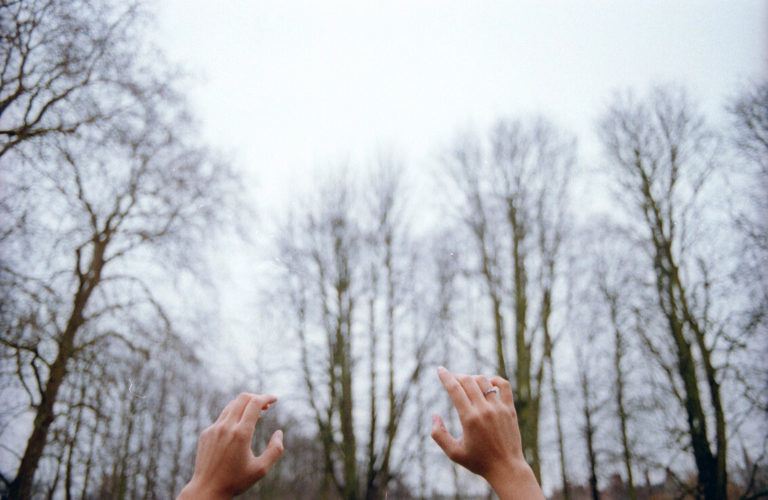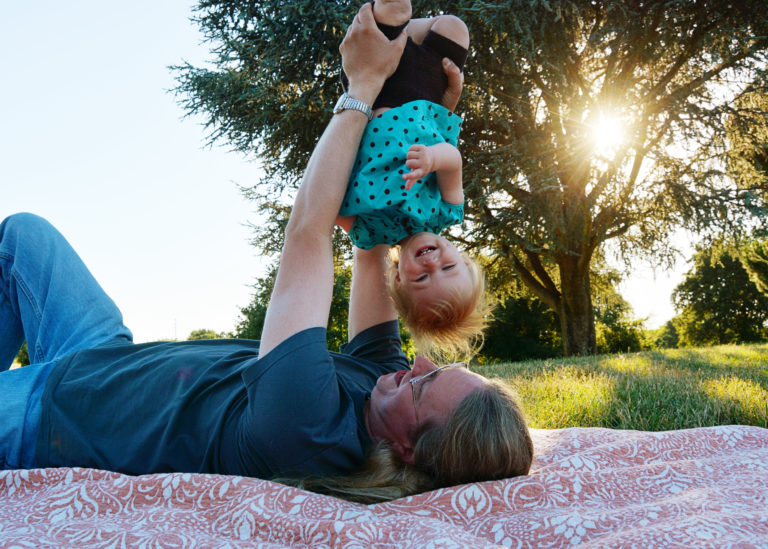
Image by Victoria Xia/Flickr, Attribution-NonCommercial-NoDerivs.
The Sacred Lessons in the Mess
My two-year-old’s screams echoed against the bathroom walls. She looked like a drowned puppy, her hair flattened against her round face, water dripping into her eyes. I knelt next to the bathtub with a pink plastic cup and felt incredulity fill my body. Maya was incensed because she was getting soap in her eyes, soap, it should be noted, that she, herself, was putting there. Over and over again. Despite her own, and my, protestations.
I would have laughed out loud if I hadn’t been so busy trying to get her eyes from stinging and weren’t so frickin’ tired.
The next day, I was on a conference call with someone wise, a mother of teenagers, and somehow the conversation drifted to spirituality. She said something to the effect of, “You know, for so long, everything that was supposed to be sacred was about transcending the messiness of human life, but I think so much of the most spiritual ‘stuff’ dwells in the material.” (I know, a pretty unusual conference call).
Maya screaming in the bathtub popped into my head.
In that moment, she was a poster child for the “terrible twos,” yes, but she was also a pint-sized version of the folly of humanity. What is war, if not human beings putting soap in our own eyes over and over again and then protesting the injustice of it all? What is climate disaster? What is political gridlock?
We like to fancy ourselves rational beings, but really we are masterful at justifying so many self-obliterating behaviors. We are highly illogical posers.
Parenting is so humbling in so many ways. I think nothing of finding a smear of shit on my clothes. There have been multiple times that I have literally caught Maya’s vomit in my own hands and been relieved that it didn’t get on anything that I had to wash. She hands me a half-chewed slice of pear, and I eat it without thinking.

It’s emotionally humbling too. When Maya becomes 25 pounds of sputtering id, separated from an experience or object she desires, I can be so helpless in the face of all that feeling. Thirty-six years old and the two-year-old can have me on my knees, desperate to outsmart an emotion that won’t be intellectualized. I look around and up at the ceiling, in need of rescue, but there is no deus ex machina in mothering toddlers.
But I realized, in that moment on the phone, that in the midst of all that basic physicality, in the midst of all that animal feeling, there is a gift of clarity.
We are flesh and blood. We are muscle and bone. We are craving and disappointment. We are creature. We are bodily.
When I looked that word up, I was amused to find “unspiritual” listed as a synonym. Once again, I could almost laugh out loud, because I now understand how preposterous it is to posit the body, the material, the messy in opposition to what is sacred. They are intertwined so finely. They are what makes us so ludicrous and so lovable.
I don’t claim to understand much about formal religion. The truth is that I’m unusually ignorant about religious texts, their teachings, their histories. But I am no longer ignorant about the most basic lessons of caretaking, many of which strike me as undeniably sacred, while also being maddening and mundane and, at times, even gross.
The commitment to love someone so little, in the absence of logic, in the presence of such huge feelings and such relentless physical needs, is the most religious experience I’ve ever had. It teaches me about humanity in a way that no text or allegedly mature relationship ever has. It humbles and exalts me simultaneously.

